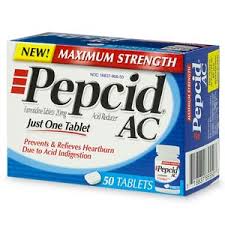When your cat is experiencing digestive upset, it can be both stressful and confusing to find the right treatment. One commonly recommended medication is famotidine, more widely known under the brand name Pepcid. Originally developed for humans, famotidine has found its place in veterinary medicine due to its effectiveness in treating gastrointestinal issues in pets, including cats. This article will explore how famotidine Pepcid for Cats works, when it’s used for cats, proper dosing guidelines, possible side effects, and safety considerations.
What Is Famotidine (Pepcid)?
Famotidine is a histamine-2 (H2) receptor antagonist. It works by reducing the production of stomach acid. In humans, it’s often used to treat heartburn, acid reflux, and ulcers. In veterinary medicine, famotidine is similarly prescribed to manage acid-related stomach problems in animals.
For cats, famotidine is commonly used to:
-
Treat stomach ulcers
-
Prevent acid reflux
-
Manage gastritis (inflammation of the stomach lining)
-
Reduce nausea associated with excess stomach acid
-
Ease symptoms related to kidney disease that cause vomiting
Famotidine does not cure the underlying condition but offers symptomatic relief and helps prevent complications caused by excess stomach acid.
Is Famotidine Safe for Cats?
In general, famotidine is considered safe for short-term use in cats when prescribed by a veterinarian. However, like all medications, it should only be given under professional guidance. While many pet owners have used over-the-counter Pepcid for their cats, dosing and duration must be tailored to the cat’s specific condition, age, and overall health.
Some veterinarians are moving away from prescribing famotidine for long-term use due to emerging studies suggesting it may lose effectiveness with extended administration, a phenomenon called tachyphylaxis. Therefore, it’s best suited for acute issues or short treatment courses.
Famotidine Dosage for Cats
The typical dosage for famotidine in cats is 0.25 to 0.5 mg per pound (0.5 to 1 mg/kg), usually given once or twice daily. For example, a 10-pound cat might receive 2.5 to 5 mg per dose. Famotidine comes in 10 mg and 20 mg tablet strengths, so it often requires careful splitting or compounding to achieve the correct dosage.
Important tips:
-
Always confirm the dosage with your veterinarian.
-
Never guess based on human dosing instructions.
-
Avoid using flavored human formulations that may contain xylitol or other harmful ingredients.
Side Effects and Interactions
Most cats tolerate famotidine well. However, potential side effects may include:
-
Loss of appetite
-
Vomiting
-
Diarrhea
-
Fatigue
These symptoms are rare and usually mild. Still, if your cat displays any unusual behavior or worsening symptoms after starting the medication, stop administration and consult your veterinarian immediately.
Famotidine can also interact with other medications, especially drugs that rely on stomach acidity for absorption (such as certain antifungals or iron supplements). Be sure to inform your vet of any other medications or supplements your cat is taking.
How to Administer Famotidine
Administering tablets to cats can be a challenge. Here are some tips:
-
Use a pill pocket or soft treat to hide the tablet.
-
Crush the tablet and mix it with a small amount of wet food (only if your vet approves).
-
Ask your vet or pharmacy about compounded liquid versions, which may be easier to administer.
Keep in mind that famotidine should be given on an empty stomach, typically 1 hour before meals, for best results.
Alternatives to Famotidine
If famotidine isn’t effective or suitable, your veterinarian may recommend alternatives such as:
-
Omeprazole (Prilosec) – a proton pump inhibitor
-
Ranitidine (Zantac) – another H2 blocker, though less commonly used now
-
Sucralfate – a coating agent used for ulcers
Dietary changes, fluid therapy (for kidney disease-related gastritis), or anti-nausea medications like maropitant (Cerenia) may also be part of a broader treatment plan.
Where to Buy Famotidine for Cats
While Pepcid is available over the counter, always consult a veterinarian before giving it to your cat. Some pet-specific suppliers, like petworldgdl.com, offer veterinary medications, including compounded options tailored to pets.
Conclusion
Famotidine Pepcid for Cats can be a valuable tool for managing acid-related stomach issues in cats. When used responsibly and under veterinary supervision, it provides fast-acting relief from ulcers, reflux, and gastritis. However, it is not a one-size-fits-all solution and should not be given without professional guidance. If your cat is showing signs of stomach discomfort—such as vomiting, drooling, or poor appetite—schedule a vet visit to determine whether famotidine is the right option for your feline friend.
- famotidine pepcid for cats
- Famotidine Pepcid for Cats can be a valuable tool for managing acid-related stomach issues in cats. When used responsibly and under veterinary supervision, it provides fast-acting relief from ulcers, reflux, and gastritis.
- famotidine pepcid for cats
Related posts:
 Best Topical Finasteride & Minoxidil Spray for Hair Regrowth
Best Topical Finasteride & Minoxidil Spray for Hair Regrowth
 What Are the Key Considerations Before Getting Filler Injections?
What Are the Key Considerations Before Getting Filler Injections?
 Dr. Kami Hoss Gives Out the Truth About Brushing & Flossing-Protecting Your Teeth
Dr. Kami Hoss Gives Out the Truth About Brushing & Flossing-Protecting Your Teeth
 Can Atrial Fibrillation Be Cured? Latest Research & Insights
Can Atrial Fibrillation Be Cured? Latest Research & Insights
 Expert Lung Care in Jaipur: Why You Shouldn’t Ignore Breathing Issues
Expert Lung Care in Jaipur: Why You Shouldn’t Ignore Breathing Issues
 How Massage Therapy Can Improve Your Health: A Guide for Queens Residents
How Massage Therapy Can Improve Your Health: A Guide for Queens Residents
 A Complete Guide on the Pricing of the Composite Bonding in London
A Complete Guide on the Pricing of the Composite Bonding in London
 Your brief and useful guide to removable orthodontic appliances
Your brief and useful guide to removable orthodontic appliances






